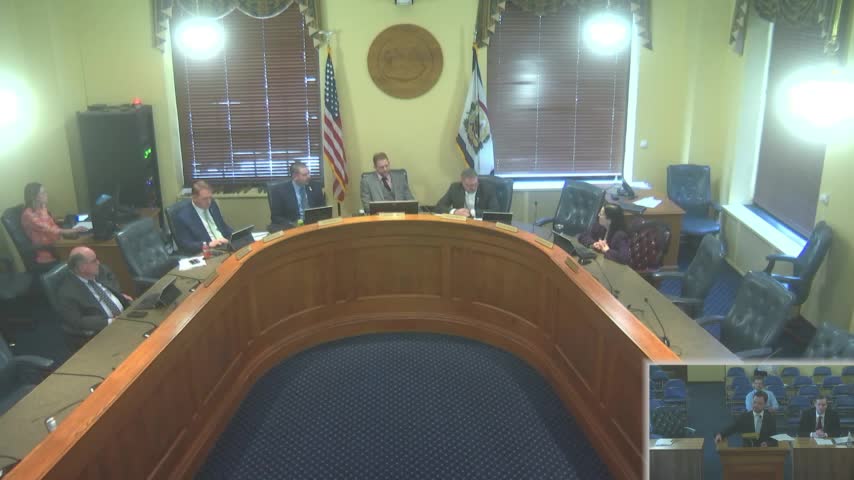Committee amends farm-appraisal bill to let corporate owners count separate tracts toward $20,000 threshold
Get AI-powered insights, summaries, and transcripts
Subscribe
Summary
A committee substitute for SB 618 was amended to allow a corporate owner to aggregate multiple noncontiguous farm parcels when determining eligibility for a reduced farm property appraisal if those parcels together generate at least $20,000 in annual agricultural product sales.
The West Virginia Senate Agriculture Committee approved a committee substitute for Senate Bill 618 and adopted an amendment to allow corporate owners to aggregate separate parcels of farmland when determining eligibility for the reduced method of farm property appraisal if the aggregated parcels generate at least $20,000 in annual agricultural sales.
Committee counsel told members that SB 618 “adds a new subsection that provides that even if a corporate owner of farm property is not engaged in farming as its principal activity… it can still qualify for the reduced method of appraisal if any parcel of farm property that it owns generates at least $20,000 from the sale of agricultural products on an annual basis.” The bill rephrases the added subsection for clarity and removes a redundant rule-making provision.
Why it matters: West Virginia’s existing appraisal rule generally requires an individual or corporation to be “engaged in farming” as a principal activity—commonly interpreted as earning more than 50% of business receipts from farming—to qualify for the reduced farm valuation. The committee substitute creates an alternative pathway for corporate owners to qualify based on a $20,000-per-year agricultural-sales threshold.
Questions in committee focused on whether the change would encourage corporate farming and how parcels owned by the same corporate entity would be treated. The Senator from Jefferson asked whether the bill would “in any way… encourag[e] corporate farms.” The lead sponsor responded that the change was not intended to create new corporate farms but to help existing owners who farm as part of a larger business structure and who struggle to meet a strict 50% threshold.
During committee discussion, a senator proposed and the committee adopted an amendment clarifying that multiple separate parcels owned by a single corporate owner may be tallied together to meet the $20,000 threshold even if the tracts are not contiguous. Committee counsel explained: “if they all tallied together, hit the $20,000 mark, then they are eligible for the reduced property valuation method.” The junior senator from the second spoke in favor of the amendment, saying it “would add flexibility to what this bill is trying to help and solve.”
Process and next steps: the committee agreed to the committee substitute as amended and voted to report it to the full Senate with the recommendation that it do pass, with the original double committee reference preserved (first to the Committee on Finance). Members noted a fiscal note had been requested; the transcript records that no tax-department representative was present to address fiscal impacts at the committee meeting.
The committee’s actions were carried by voice vote and recorded as adopted; no roll-call vote tally of individual members was included in the transcript.
